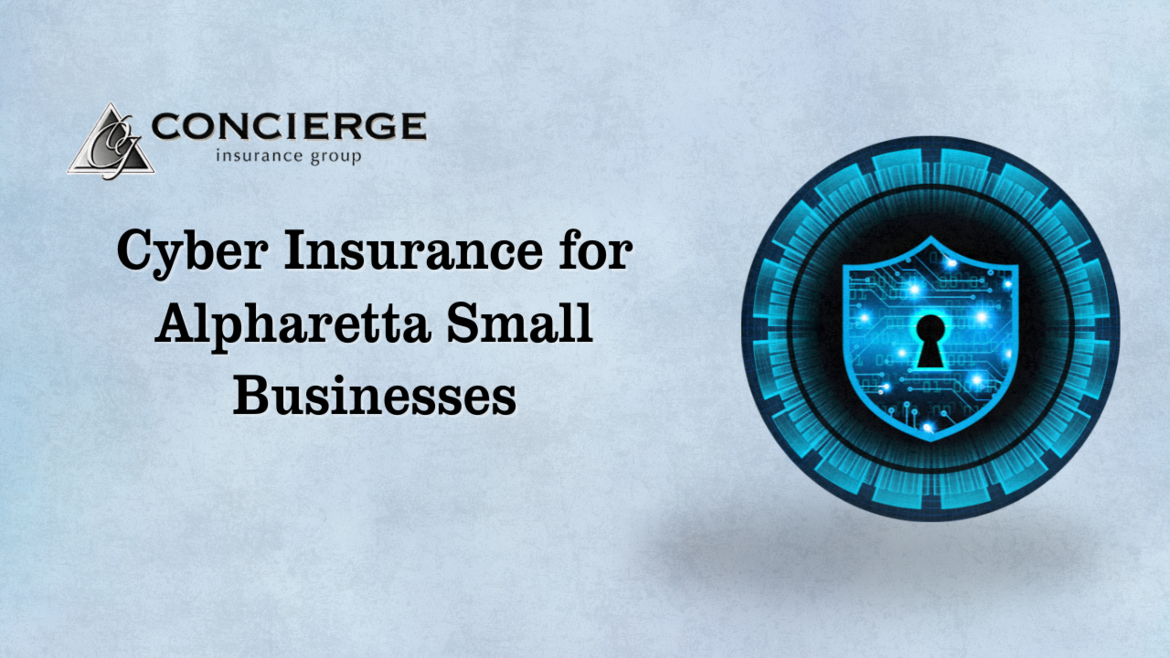
Do you know how vulnerable your small business in Alpharetta is to cybercrime in 2025?
Are you confident that your current insurance—and cybersecurity—could survive an AI-powered ransomware attack or deepfake scam?
In this article, you’ll learn exactly why cyber insurance is no longer optional for local small businesses—and what kind of coverage actually protects you.
We’ll walk you through:
-
The top cyber threats Alpharetta businesses face in 2025
-
What cyber insurance does and doesn’t cover
-
Real-world attack examples from your area
-
What insurance costs, and what affects your rates
-
The essential steps you need to take before buying a policy
The 2025 Cyber Threat Landscape: What Alpharetta Businesses Must Know
Cyberattacks have reached unprecedented levels—and small businesses are now the #1 target. In Alpharetta alone, attacks are happening three times more often than just three years ago.
Ransomware Is Still King
Ransomware remains the top concern for small business owners, with each attack costing an average of $35,000. Ransomware-as-a-Service (RaaS) tools have made it easier than ever for cybercriminals to launch attacks—even with minimal technical skill.
Example:
In February 2025, Alpha Wellness and Alpha Medical Centre were hit by a RansomHub ransomware attack. The breach affected 1,714 patients and ultimately forced the business to close.
AI Supercharges Cybercrime
AI isn’t just helping your marketing—it’s helping hackers too. Phishing attacks are up 1,265%, and deepfake scams have already surpassed 2024 totals.
Real damage:
One Alpharetta-based engineering firm lost $25 million after falling for a deepfake video conference that impersonated their CEO.
Your Supply Chain Could Be the Weakest Link
Nearly one-third of all breaches originate from third-party vendors, with supply chain attacks rising 40% in the past two years.
Why Hackers Love Small Businesses
Small businesses are prime targets for four key reasons:
-
Limited cybersecurity resources: 80% lack formal cybersecurity policies
-
Weaker digital defenses: 45% don’t have endpoint protection
-
Valuable data: Customer, payment, and IP data are often poorly protected
-
High payout likelihood: Smaller firms tend to pay ransoms quickly to resume operations
Stat to know:
60% of small businesses close within six months of a cyberattack.
What Cyber Insurance Actually Covers
Cyber insurance typically breaks down into two categories:
First-Party Coverage (Protects you)
-
Business interruption coverage
-
Ransom payments and cyber extortion
-
Data restoration and forensic investigation
-
Crisis communications and PR
-
Notification and credit monitoring for affected clients
Third-Party Coverage (Protects you from others)
-
Legal fees and lawsuits
-
Regulatory fines and penalties
-
Settlement costs
-
Intellectual property claims
Pro Tip:
The best policies include both types of coverage for full-spectrum protection.
What Does Cyber Insurance Cost in 2025?
The market has stabilized, and pricing is now more consistent:
-
Average Cost: $145/month or $1,740/year for $1M in coverage
-
Low-Risk Businesses: $500–$750 annually
-
High-Risk Businesses: $2,500–$3,500 annually
Factors That Affect Premiums
-
Industry and business type
-
Amount of sensitive data stored
-
Cybersecurity protocols (e.g., MFA, backups)
-
Company size and revenue
-
Claims history
-
Physical location (yes, even your ZIP code matters)
Industry-Specific Risks for Alpharetta
Healthcare Providers
Due to HIPAA regulations and sensitive patient data, providers like Alpha Medical Centre face steep recovery and compliance costs post-breach.
Professional Services
Law firms, accountants, and consultants handle sensitive data and are frequent phishing targets.
Tech & IT Companies
Firms with access to client systems or proprietary software face elevated risks.
Retail & E-Commerce
These businesses often process payments and hold consumer data—prime targets for fraud and identity theft.
What’s New in 2025? Emerging Threats to Know
Deepfake Fraud
Already 179 incidents in Q1 2025 alone. These scams bypass traditional identity verification and are nearly impossible to detect with the naked eye.
Smarter Social Engineering
CEO impersonation, vendor spoofing, and long-game fraud campaigns are now common.
IoT and Edge Computing Vulnerabilities
With more smart devices and 5G networks, Alpharetta businesses have more “open doors” for cybercriminals to exploit.
How to Protect Your Business Beyond Insurance
Cyber insurance helps with recovery, not prevention. You also need:
-
Multi-factor authentication on all logins
-
Security awareness training for employees
-
Offline backups that are regularly tested
-
Incident response plans
-
Routine vulnerability scans
Choosing the Right Cyber Insurance Policy
When evaluating coverage, make sure to:
-
Align coverage limits with your revenue and data exposure
-
Understand deductibles and exclusions
-
Choose policies that include 24/7 breach response
-
Ensure compliance with industry-specific regulations
Why Skimping on Coverage Is a $120,000 Mistake
That’s the average cost of a small-business data breach—and that doesn’t include:
-
Lost sales during downtime
-
Lost customers and brand trust
-
Regulatory fines
-
Legal costs
-
Long-term reputation damage
Compared to $100–$200/month, cyber insurance offers a serious return on protection.
Conclusion: How Will You Protect Your Alpharetta Business?
At the end of the day, cyberattacks aren’t “big company” problems anymore—they’re your problem. Whether you’re running a medical practice, an engineering firm, or an online store, the risks are real, local, and rising.
Now that you know how cyber insurance works, what it costs, and what protection it offers, it’s time to evaluate your business’s risk level and close the coverage gap.
If you're not sure where to start, speak with a local insurance expert who understands Alpharetta’s cyber landscape and can guide you toward the right policy.
Your next step? Don’t become the next cautionary tale. Get covered before it’s too late.

